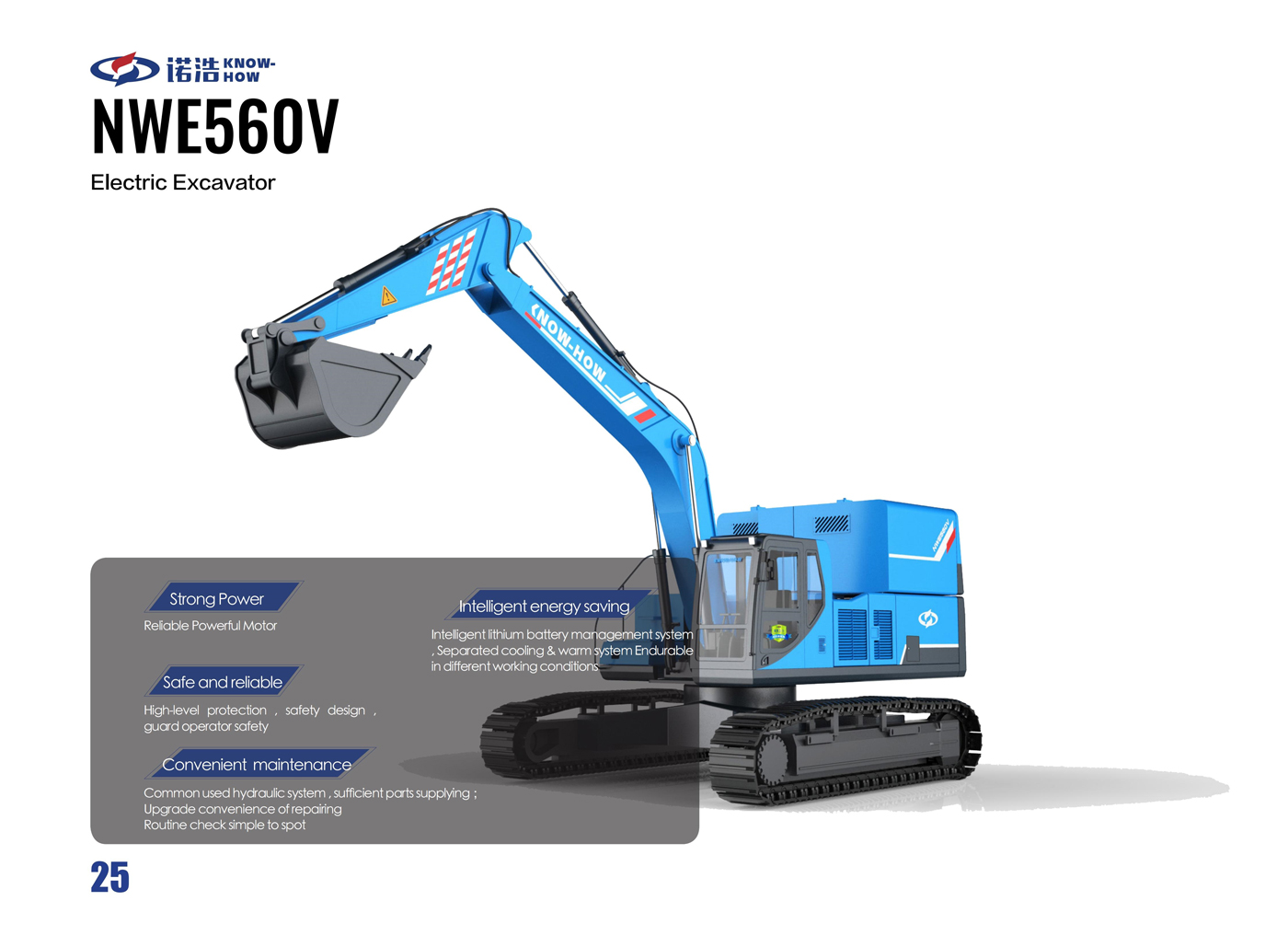May. 08, 2024
In the realm of heavy machinery, the choice between an electric excavator and a fuel excavator is pivotal. As industries evolve and environmental concerns take center stage, understanding the nuances between these two giants of construction equipment becomes imperative. Let's delve into the intricacies, benefits, and drawbacks of each, guiding you towards an informed decision that aligns with your project needs.
Electric excavators epitomize sustainability in construction. Powered by electricity, they produce zero emissions during operation, making them eco-friendly alternatives to their fuel-guzzling counterparts. With a growing emphasis on reducing carbon footprints, electric excavators emerge as champions of environmental stewardship.

On the other hand, fuel excavators rely on diesel or gasoline, emitting greenhouse gases and contributing to air pollution. While they boast robust power and efficiency, their environmental footprint raises concerns amidst global efforts to combat climate change.
Despite misconceptions about electric equipment's power, electric excavators exhibit commendable performance. Leveraging advanced technology, they offer comparable power output and efficiency to fuel excavators. Moreover, electric motors deliver instant torque, enhancing responsiveness and productivity on job sites.
Fuel excavators have long been synonymous with raw power and durability. Their combustion engines provide high torque output, enabling them to tackle demanding tasks with ease. However, they lag in efficiency compared to electric counterparts, consuming fossil fuels at a considerable rate.
While initial investment costs may be higher for electric excavators due to advanced technology and batteries, they offer significant long-term savings. With lower operating costs and reduced maintenance requirements, electric excavators prove to be financially prudent investments over their lifespan.
Fuel excavators typically boast lower upfront costs compared to electric variants. However, their operational expenses, including fuel consumption and maintenance, contribute to higher lifetime expenditures. As fuel prices fluctuate and environmental regulations tighten, the total cost of ownership for fuel excavators may escalate.
Electric excavators excel in versatility, catering to a wide range of applications across industries. From urban construction projects to indoor operations, their quiet operation and zero emissions make them suitable for environmentally sensitive areas and noise-restricted zones.
Fuel excavators remain the go-to choice for heavy-duty applications in rugged terrains and remote locations where access to electricity is limited. Their robust engines and fuel tanks ensure uninterrupted operation in challenging environments, making them indispensable assets for certain projects.
In the perennial debate between electric and fuel excavators, both sides present compelling arguments. While electric excavators champion environmental sustainability and long-term cost savings, fuel excavators tout power, reliability, and adaptability in diverse scenarios. Ultimately, the choice hinges on project requirements, budget considerations, and environmental commitments.
By weighing the pros and cons of each option, you can make an informed decision that aligns with your objectives and values. Whether you prioritize environmental stewardship, operational efficiency, or budget constraints, the right excavator choice lays the foundation for success in your endeavors.
6
0
0
All Comments (0)
Previous: None
If you are interested in sending in a Guest Blogger Submission,welcome to write for us!
Comments